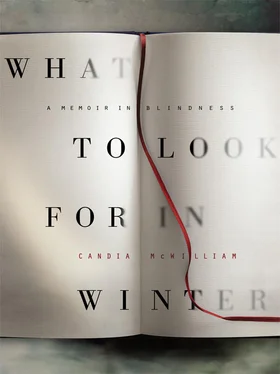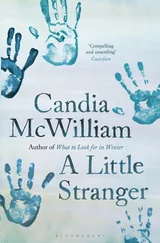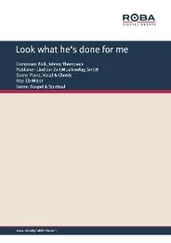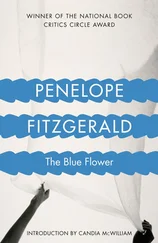I asked them all when they stood round me, helmets off, after it, what I could do for them.
‘Write a letter to head office, that would be great. If you think we did our job properly.’
I wrote several such letters in my best writing that looks like my old worst writing. These were love letters.
And the cats? Of course, an officer had been deputed to find and liaise with them, so much so that his uniform may never recover from the cuddling.
That night, without my knowing it, my translation was organised. My second husband telephoned to my first husband and got my older son. It turned out that the fire, which could have been so much worse, came like a catastrophe in a play, a kind of relief, so that at last my family could talk about my blindness and where to put it and me and my two cats.
The novels of Iris Murdoch are, for the time being, out of fashion. She has become someone in a film, someone pitiable even, someone who has been impersonated by souls who haven’t read her work. It is not my place nor intention here to play reputations but in her time she was an enchantress and her philosophical work contains much that is luminous; as a girl, she presciently noted Simone Weil’s words suggesting that deracinated people can be among those who cause the most damage.
I mention Iris, whom it’s only fair to say I did slightly know (in case someone wants to niggle about Oxford’s closed hive), because what happened to the cats could only have been invented or written, in its full richness, by her. My cats, for the duration of my move from Oxford to London and the first precarious London weeks, were cared for by a couple named Leander and Rachel.
Leander and Rachel, at the insistence of each of their mothers, had moved from their flat in Stockwell with their own at the time five cats to Oxford where Leander lectures at Brookes University. The couple first met in the Lemon Tree cafeteria on Platform 8 at Reading Station. There was a theory to this, the Ancient Greek theory of buying off expectation, like calling the Fates the ‘Kindly Ones’.
If you meet, the theory of Leander and Rachel ran, in a truly awful place, your relationship will prosper and your love be lifelong. When they first met, my younger son was seven. He started angling to be pageboy at their wedding when he was about seven and a quarter.
He was finally the ring-bearer at their ceremony of civil partnership on a summer afternoon in 2007. Leander, a stunning redhead, as the old social magazines might have said, wore a frock modelled on that of Mrs John F. Kennedy, designed by Oleg Cassini, at the Presidential Inauguration Ball. Rachel, a beautiful petite brunette, wore an ivory silk sheath.
Leander, which is her real name, arrived in our lives with as much competence and fabulousness as Mary Poppins. She came with an emerald dolphin nose-stud and streaming red hair, to be my daily lady. She has stayed at the core of our lives as good genius, role model, Christian example (of course she’s an ex-Goth), Green activist, mentor, cat counsellor, nearest thing to a nanny in every good way and none of the bad, sci-fi nut, baker of weekly cakes and friend of the heart, together with her lovely wife, archaeologist, academic, beauty and the driest wit this side of Campari. Lists like this can be lazy, but there is a crammed goodness to the pair that has almost literally sustained me during the locust years.
At the reception there were fifteen wedding cakes including one topped with a bride and bride, and, for the duration of that hot green garden afternoon with children playing in several languages around us, I sat under a tree with my son and Leander’s mum and dad and allowed a new thought to cross my mind: that all could be well.
It was late June of that same year. My older son Oliver and I met in, as the nonsensical phrase has it, a ‘residential’ part of London where, even with my photophobia and flinching face, I perceived that I would feel like a thistle in a plushy meadow if I pretended to live hereabouts. My son had taken time off work. He is half a foot taller than I am. I love to be in his shadow. He was in a suit. The day was unbreathably hot. I could see he was missing important phone calls.
We were nearing the end of our list of flats for rent. We had squeezed our frames into several highly accoutred provisional and meretricious spaces with nice keen girls. We had viewed eight leather sofas and three very thin tellies. How did I see this? By doing as I’m doing now, to read this through, by pulling up my eyelids’ raw skin, and by making mad faces.
I feel like Mrs Tiggy-winkle with the spikes growing inwards especially over my eyes. I move like Mrs Tiggy-winkle too, tentatively shuffling as though in slippers and very old. I climb upstairs like a child of two.
We had one flat left. We had heard about it only that morning. Over breakfast, Olly’s godfather had told Fram, who is his great friend, that he had just inherited somewhere off the King’s Road, its owner an American artist who had lived for many years in Italy before moving to London in the nineteen-seventies. He painted right up till almost the very end and the last two squiggles of pigment he chose are still sitting on his palette under an inverted toffee tin. Mauve and ochre, the colours of shadow in Rome.
We sat in Olly’s car. I could feel his thin skin not liking the heat of the day. He has hair the colour of the flame on a firelighter packet and slanting green eyes. I was melting like an old cake. We were only just not tearful, like hot children on a birthday.
We shook ourselves down, he clicked shut his car and we ambled to a house that I had not entered since having dinner there thirty years before in the company of my father’s old schoolfriend Simon Raven.
The street was a chasm of heatwave. We pressed one of four bells. Two heavy doors were opened and we stepped into what might as well, that afternoon, have been in its shaded refreshing dinginess, a segment of a palace in Venice.
Oliver, who is formal in his manner and composed of jokes and understatement, said, ‘It’s like your old life, Mummy. Look at all the books.’
I could smell home. Books, linoleum, dust, polish, oil paint, soot, laurel and the very faint note of drains. Edinburgh, Cortona, Karachi, the Hebrides. And now Tite Street.
If I’d stayed at home, would it all have happened? Or is this every runaway’s question when chased down by shame?
It’s certainly a question you might have wanted to ask of my uncle Clement, who, if he’d been able to stay at home at ‘Dunkeld’, my paternal grandparents’ home in Sydenham, or at his and my grandmother’s grace-and-favour house at Windsor Castle, where he was organist and choirmaster at St George’s Chapel, might not have married or become a father. Would his musicality, sheltered, have made him a more sung English composer of the twentieth century? Or would he have chosen, as he did, his own merry means of death as one of the seven Noble Gentlemen of Poverty at St Cross in Winchester? Fewer than a dozen of us went to his funeral at Basingstoke Crem.
Clement’s son, David, one of my only two first cousins, who looks lugubrious and is funny, very handsome in the darker Italian fashion, stepped forward and stuck on Clement’s coffin as it slipped through the curtains the label he had steamed off his daddy’s last bottle of Gordon’s Gin. ‘Mrs Gordon’, Clement called it. For him, not mother’s ruin at all, but quite possibly a mother’s boy’s compensation for that mother’s absence.
Winchester Cathedral rang with voice at his memorial. He paid for his gin by giving maths tuition to the children of takeaway proprietors and late-night shopkeepers, ambitious for their children’s rise up the slippery pole Clement had negotiated by ignoring or perhaps remaining innocent of it. He saw the sad and funny, not the worldly, in the world.
Читать дальше











